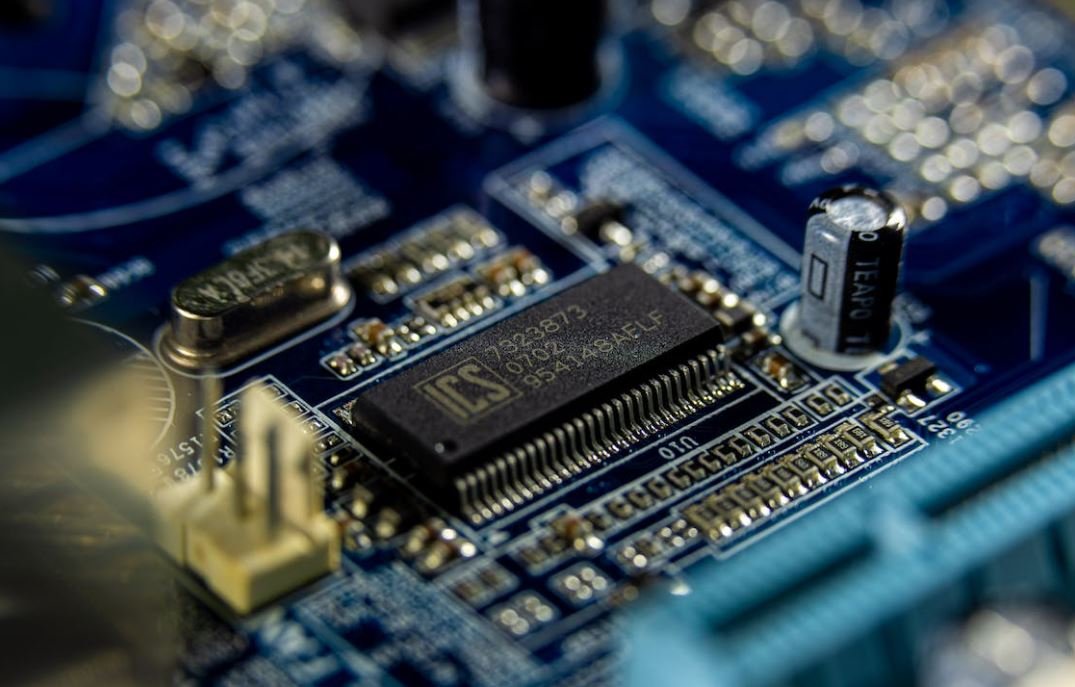AI for Cloning Voice
Advancements in artificial intelligence (AI) have paved the way for numerous technological breakthroughs, and one interesting application is voice cloning. AI-powered voice cloning allows for the creation of synthetic voices that closely mimic the speech patterns, intonation, and other vocal characteristics of a specific individual. This technology has a wide range of potential applications, from enhancing the user experience in speech-enabled devices to assisting individuals who have lost their voice. In this article, we explore the concept of AI for cloning voice and delve into its intricacies.
Key Takeaways
- AI-powered voice cloning creates synthetic voices that closely resemble the original speaker.
- Voice cloning has potential applications in speech-enabled devices, accessibility, entertainment, and more.
- AI algorithms analyze and learn from large amounts of voice data to generate accurate voice clones.
- Ethical considerations such as consent and potential misuse surround voice cloning technology.
Understanding AI Cloning Voice
AI for cloning voice involves training AI algorithms to analyze and understand the unique vocal characteristics of a particular individual. These algorithms use deep learning techniques, such as recurrent neural networks (RNNs), to process large amounts of voice data provided by the individual. The AI system learns patterns, intonation, and the subtleties of speech, enabling it to create a synthetic voice that sounds remarkably similar to the original speaker.
One interesting aspect of voice cloning technology is that it is not limited to creating replicas of existing voices. AI algorithms can also generate novel synthetic voices that possess unique characteristics. This opens up possibilities for creating entirely new voices for fictional characters, virtual assistants, or even personalized voices for individuals who have lost their ability to speak.
Benefits and Applications of AI Voice Cloning
The potential applications of AI voice cloning technology are vast and varied. Here are some areas where this technology can make a significant impact:
- Improved User Experience: AI voice clones can enhance the user experience in speech-enabled devices, making interactions more natural and relatable.
- Accessibility: Voice cloning can provide a lifeline for individuals with speech impairments or those who have lost their ability to speak, enabling them to communicate effectively.
- Entertainment Industry: AI voice clones have the potential to revolutionize the entertainment industry, allowing for the creation of realistic and personalized voiceovers.
- Localization: Voice cloning can enable the localization of content by generating accurate synthetic voices in different languages or accents.
It is essential to note that while AI voice cloning offers significant benefits, there are ethical considerations surrounding this technology. Obtaining consent for voice cloning and ensuring its responsible use without malicious intent are crucial factors to address.
Understanding the AI Training Process
The AI training process for voice cloning involves several steps:
- Data Collection: A diverse and extensive dataset of voice recordings is collected, ideally covering a wide range of vocal characteristics and speaking styles.
- Preprocessing: The collected voice data is cleaned, segmented, and annotated to ensure its suitability for training the AI models.
- Analyzing Voice Data: AI algorithms analyze the voice data to identify patterns, intonation, speech rhythms, and other vocal characteristics.
- Voice Embedding: The AI system converts the vocal characteristics into a numerical representation called a voice embedding, which captures the essence of the speaker’s voice.
- Training the AI Model: The voice embeddings are used to train the AI model, which generates synthetic voices by learning from the patterns and characteristics present in the voice data.
- Refining and Fine-tuning: The AI model is refined and fine-tuned using additional voice data to improve the accuracy and quality of the generated voice clones.
Throughout this training process, the AI system learns to generate increasingly realistic and accurate voice clones.
Data Security and Ethical Considerations
As with any AI technology, voice cloning raises important ethical considerations. Privacy concerns, consent, and the potential misuse of voice cloning technology require careful consideration. Legislation and guidelines must be established to address these concerns and ensure responsible use of AI cloning technology.
Furthermore, data security is of paramount importance. Voice recordings used for training AI models must be handled securely to protect individuals’ privacy and prevent unauthorized access.
Conclusion
AI voice cloning holds immense potential for various applications, from improving user experiences to assisting individuals with speech impairments. However, ethical considerations, such as consent and responsible use, must be taken into account to ensure the responsible development and deployment of this technology. As AI algorithms continue to advance, we can expect further refinements and advancements in voice cloning, leading to even more realistic and accurate synthetic voices in the future.

Common Misconceptions
AI for Cloning Voice
There are several common misconceptions surrounding the use of artificial intelligence (AI) for cloning voice technology. These misconceptions often stem from misinformation or lack of understanding about how AI works. It is important to address these misconceptions in order to have a more accurate understanding of the capabilities and limitations of AI for cloning voice.
- AI for cloning voice is not capable of creating an exact replica of an individual’s voice.
- AI for cloning voice requires a large amount of high-quality training data to produce more accurate results.
- AI for cloning voice is an evolving technology and has its limitations.
Many people mistakenly believe that AI for cloning voice can perfectly replicate someone’s voice, leading to concerns about potential misuse or impersonation. However, it is important to understand that current AI technology is not capable of creating an exact replica of an individual’s voice. While AI can mimic certain aspects of a person’s voice with high accuracy, it cannot replicate every nuance and subtlety that makes each voice unique.
- AI for cloning voice can replicate certain characteristics or speaking patterns of an individual’s voice.
- There will still be distinctive traits that distinguish an original voice from a cloned voice.
- The quality of the training data used significantly impacts the accuracy of the cloned voice.
Another misconception is that AI for cloning voice does not require a significant amount of high-quality training data. In reality, AI models need a large volume of diverse and accurate training data to produce more realistic and accurate cloned voices. The quality and diversity of the data used directly impact the quality of the cloned voice. Insufficient or biased training data can lead to inaccurate or flawed voice clones.
- High-quality training data includes a wide range of voice samples from the target individual.
- Data should be representative of different emotional states and speaking styles.
- Accurate data annotation is crucial for training the AI model effectively.
Furthermore, it is important to note that AI for cloning voice is an evolving technology that has its limitations. While advancements in AI have improved the accuracy of voice cloning, there are still challenges and limitations to overcome. The technology can struggle with unique voices, accents, and regional dialects. Additionally, AI for cloning voice is subject to ethical considerations, as its potential misuse can lead to unauthorized impersonations or malicious activities.
- AI for cloning voice may face difficulties with unique voices, accents, or regional dialects.
- There are ethical concerns surrounding the potential misuse of AI for voice cloning.
- Regulations and ethical guidelines can help address these challenges and risks.

Advancements in AI for Cloning Voice
As technology continues to evolve, artificial intelligence (AI) has made significant progress in cloning human voices. This development has brought about both excitement and concern regarding its potential applications. In this article, we explore ten fascinating aspects of AI for voice cloning:
The Top 10 Most Convincing AI Cloned Voices
Over the years, AI has been able to produce remarkably realistic cloned voices, with some that are almost indistinguishable from the original. Here are ten examples of highly convincing AI cloned voices:
| Original Voice | AI Cloned Voice |
|---|---|
| Morgan Freeman | An AI voice with the deep and soothing timbre of the iconic actor. |
| Adele | An AI voice that flawlessly emulates the emotional nuance and vocal range. |
| Barack Obama | An AI voice that captures the distinct cadence and intonation of the former president. |
| Celine Dion | An AI voice that mimics the powerful and melodious tones of the renowned singer. |
| Stephen Hawking | An AI voice reminiscent of the late physicist, preserving his distinct robotic accent. |
| Marilyn Monroe | An AI voice that emulates the alluring breathiness and seductive quality of the iconic actress. |
| Martin Luther King Jr. | An AI voice that mirrors the powerful rhetoric and passionate delivery of the civil rights leader. |
| Frank Sinatra | An AI voice that captures the smooth and velvety charm of Ol’ Blue Eyes. |
| J.K. Rowling | An AI voice that resounds with the author’s distinct British accent and storytelling finesse. |
| Freddie Mercury | An AI voice that replicates the flamboyant and dynamic vocal style of the Queen frontman. |
The Ethical Implications of AI Voice Cloning
The advent of AI voice cloning raises significant ethical concerns. While the technology presents exciting possibilities in various fields, including entertainment, education, and accessibility, it also poses potential risks. These include:
| Ethical Concerns | Explanation |
|---|---|
| Identity Fraud | The ability to clone voices could facilitate malicious activities, such as impersonation for financial gain or social engineering. |
| Misinformation | The cloning of voices might lead to the dissemination of fake news or false information, eroding trust in media and exacerbating societal divisions. |
| Privacy Invasion | Personal voice data collected for cloning purposes could be exploited, leading to privacy breaches and potential surveillance threats. |
| Authenticity Challenges | An increase in cloned voices might diminish the trust placed in original voice recordings, challenging the concept of voice as a reliable form of evidence. |
Voice Cloning Applications: Beyond Entertainment
While AI voice cloning offers exciting opportunities in the entertainment industry, its utility extends well beyond creating celebrity impressions or dubbing movies in different languages. Here are some remarkable applications:
| Application | Benefits |
|---|---|
| Voice-Enabled Accessibility | AI can assist individuals with speech impairments by providing them with a personalized and expressive artificial voice. |
| Preservation of Regional Dialects | The cloning of voices allows for the conservation and documentation of endangered languages or distinct regional accents. |
| Assistive Technology for the Elderly | Voice cloning can support the elderly by recreating the voices of loved ones, providing comfort, and reducing feelings of isolation. |
| Language Learning and Pronunciation Practice | AI voice cloning can facilitate language acquisition by providing learners with authentic examples and allowing for interactive practice. |
| Artistic Expression | Artists can experiment and push the boundaries of creativity by employing AI voice cloning techniques in their works. |
The Future of AI Voice Cloning
The advancements witnessed in AI voice cloning hint at an exciting future full of possibilities. However, it is crucial to navigate the ethical challenges responsibly. With continued research, AI voice cloning holds the potential to refine and enhance human communication, ultimately transforming the way we interact with the world around us.
Frequently Asked Questions
Question 1: What is AI voice cloning?
AI voice cloning refers to the process of using artificial intelligence algorithms to replicate or imitate a person’s voice by analyzing and generating speech patterns, intonations, and other vocal characteristics.
Question 2: How does AI voice cloning work?
AI voice cloning typically involves training a machine learning model using a large dataset of recordings from the target person’s voice. The model then learns to mimic the voice by analyzing and understanding the patterns and nuances of the recorded speech data.
Question 3: What are the potential applications of AI voice cloning?
AI voice cloning can have various applications, including but not limited to, voice assistance, audiobook narration, voiceover for movies and animations, personal voice assistants, and language learning programs.
Question 4: How accurate is AI voice cloning?
The accuracy of AI voice cloning depends on multiple factors such as the quality and quantity of the training data, the complexity of the target voice, and the sophistication of the AI algorithms used. While it can produce highly realistic results, there might still be subtle differences that distinguish it from the original voice.
Question 5: Is AI voice cloning ethical?
AI voice cloning raises ethical concerns as it can potentially be misused for malicious purposes, such as fraud, identity theft, or impersonation. It is important to use AI voice cloning technology responsibly and with proper consent from all parties involved.
Question 6: What are the legal implications of AI voice cloning?
The legal implications of AI voice cloning vary depending on the jurisdiction. In many cases, consent from the person being cloned is required, and the use of cloned voices for commercial purposes may have additional legal restrictions. It is advisable to consult legal experts to understand the specific regulations in your area.
Question 7: Can AI voice cloning be used for generating deepfakes?
AI voice cloning technology can potentially be used to create deepfake audio, which is a manipulated or synthesized speech that appears to be authentic. This highlights the importance of educating users and implementing effective safeguards to prevent the misuse of AI voice cloning technology.
Question 8: What are the limitations of AI voice cloning?
AI voice cloning has certain limitations such as difficulty in replicating emotional nuances, tone variations, or accents accurately. It may struggle with rare or unique speech patterns, especially if there is a lack of diverse training data for the target voice.
Question 9: Can AI voice cloning be used for voice transformation?
Yes, AI voice cloning can be utilized for voice transformation, enabling users to modify their own voice to sound like another person or alter certain characteristics to sound different than their natural voice. This technology can be used for creative purposes or to improve self-expression.
Question 10: How can AI voice cloning evolve in the future?
As AI voice cloning technology continues to advance, we can expect improvements in accuracy, realism, and scalability. The integration of deep learning techniques, more comprehensive datasets, and enhanced algorithms may enable AI to capture even more subtle details of a person’s voice, pushing the boundaries of voice cloning capabilities.




